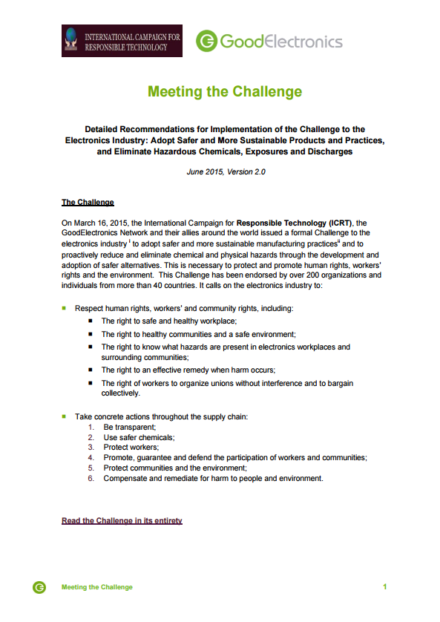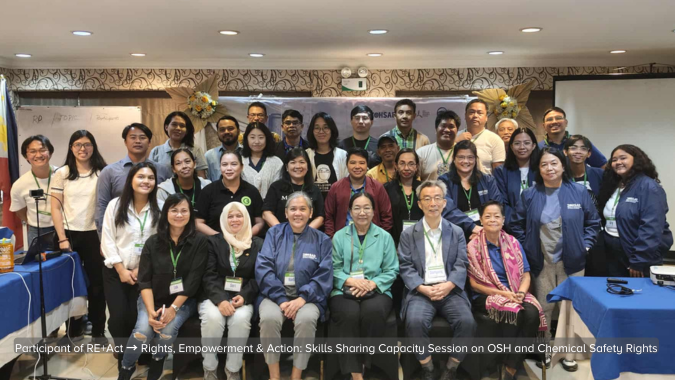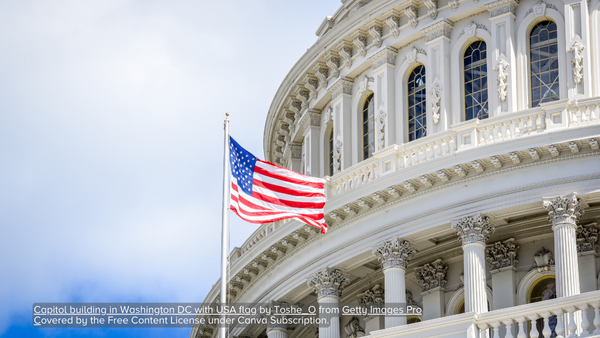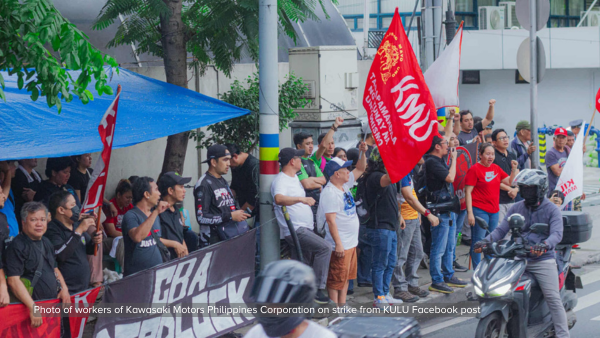On March 16, 2015, the International Campaign for Responsible Technology (ICRT), the GoodElectronics Network and their allies around the world issued a formal Challenge to the electronics industry regarding the use of chemicals. Today, a complimentary documented called “Meeting the Challenge” is launched. This document makes detailed recommendations for the industry for the implementation of the Challenge.
Meeting the Challenge
The Challenge calls upon the industry to adopt safer and more sustainable manufacturing practices and to proactively reduce and eliminate chemical and physical hazards through the development and adoption of safer alternatives. This is necessary to protect and promote human rights, workers’ rights and the environment.
The longer, more detailed “Meeting the Challenge” recommends the electronics industry:
- Transparency – Brands must disclose their complete supply chain as well as all of the materials used by all of their suppliers
- Use safer chemicals – The electronics industry (brands, manufacturers, and suppliers) and governments of countries where production occurs shall reduce hazardous exposures by eliminating or substituting the most hazardous substances and most hazardous production processes
- Protect workers – The brands shall ensure that their own and all workplaces throughout the supply chain are safe for all workers, regardless of gender or age
- Guarantee worker and community participation – Workers and community residents potentially affected by hazardous exposures must be encouraged and allowed to participate fully in the sound management of chemicals and wastes in their workplaces and communities.
- Protect communities and the environment – Prevent harm throughout the product lifecycle by conducting effective, transparent, independent monitoring and public reporting of all discharge streams from all facilities, and eliminate hazardous exposures and discharges to air, waterways, and land.
- Compensate and remediate for harm to workers, communities and the environment – Fair compensation mechanisms must ensure that workers and community members harmed by exposure qualify for and receive emergency relief; adequate, just and timely compensation; and treatment and rehabilitation for as long as is needed to fully address and, when possible, correct the harm
The document also stresses the Precautionary Principle: When an activity raises threats of harm to human health or the environment, precautionary measures shall be taken even if some cause and effect relationships are not fully established scientifically.
The Challenge has already been endorsed by over 200 organizations and individuals from more than 40 countries. The Challenge is still open for endorsement










